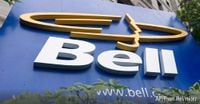BCE Inc., the parent company of Bell Media, has made a significant decision that has sent ripples through the investment community: it has cut its quarterly dividend payment by 56%. This move comes despite a reported increase in the company's first-quarter profit, reflecting the pressures faced by the telecommunications giant in a competitive and uncertain economic environment.
On May 8, 2025, BCE announced that it would reduce its quarterly dividend from 99.75 cents to 43.75 cents per share, marking the company's first dividend cut in 17 years. The annualized dividend now stands at $1.75 per share, a substantial drop from the previous $3.99 per share. This decision was not made lightly, as BCE CEO Mirko Bibic emphasized the necessity of the cut in light of "intense price competition and geopolitical instability" impacting the business landscape.
Despite the dividend reduction, BCE reported earnings per share of $0.68 for the first quarter of 2025, a remarkable 55% increase from $0.44 a year earlier. However, the company's revenue for the same period totaled $5.93 billion, which reflects a 1% decline from $6.01 billion generated a year prior. This revenue drop highlights the challenges BCE faces even as it navigates through a difficult market.
"Bell’s Q1 results reflect intense price competition and sustained regulatory uncertainty," Bibic stated. He also noted that the current macroeconomic backdrop necessitates a greater focus on the core business and customer acquisition strategies. The decision to cut the dividend was described as a responsible approach to capital allocation, allowing BCE to de-lever and invest in growth opportunities.
In conjunction with the dividend cut, BCE announced a partnership with the Public Sector Pension Investment Board (PSP Investments) aimed at accelerating the development of fiber infrastructure in the United States. This partnership is expected to enhance BCE's position in the fiber market and potentially double the locations where it serves fiber customers in Canada.
As part of its strategic plans, BCE is also targeting a net debt leverage ratio of approximately 3.5 times adjusted EBITDA by the end of 2027. The company reported an adjusted EBITDA of C$2.56 billion, which remained flat year-over-year. Free cash flow, however, saw a substantial increase, rising from C$85 million in Q1 2024 to C$798 million in the latest quarter.
Despite these positive indicators, BCE's stock performance has been lackluster. Over the past year, the company's share price has plummeted by 36%, settling at $29.38 in Toronto. This decline is part of a broader trend, with the stock down 48% over the past five years. The high dividend yield of 13.58% had previously attracted many investors, particularly retirees seeking income generation, but the recent cut has raised concerns about BCE’s financial health and future profitability.
Analysts have pointed out that BCE's challenges are compounded by a less active market and a slowdown in population growth due to federal immigration policies. The company reported a net loss of 9,598 postpaid mobile phone subscribers in the first quarter, a stark contrast to the 45,247 net activations recorded during the same period a year earlier. Customer churn remained stable at 1.21%, but the average revenue per user for mobile phone services fell to $57.08, down 1.8% from the previous year.
In light of these developments, the market is closely watching BCE's next moves. The company has maintained its 2025 financial guidance, forecasting revenue growth between -3% and +1% and adjusted EPS growth of -13% to -8% for the full year. Analysts remain cautiously optimistic, suggesting that BCE's strategic focus and cost discipline may position the company to weather the current economic storm.
Moreover, BCE's acquisition of U.S. fiber internet provider Ziply Fiber for approximately $5 billion is expected to close in the second half of 2025. This deal, which will allow BCE to hold a 49% equity stake in Network FiberCo, could provide a critical boost to its fiber deployment efforts and enhance its competitive edge in the telecommunications market.
As the company moves forward, Bibic reiterated the importance of advocating for favorable regulatory conditions in Canada. He expressed concerns that BCE's largest competitors should not have the ability to resell fiber services through Bell’s network, emphasizing that large players must invest in their own infrastructure to foster competition and ensure connectivity for all Canadians.
In summary, while BCE Inc.'s decision to cut its dividend may have disappointed some investors, it reflects a necessary recalibration in response to the current economic landscape. With strategic partnerships and a focus on core business growth, BCE aims to strengthen its financial position and adapt to the evolving telecommunications environment.






